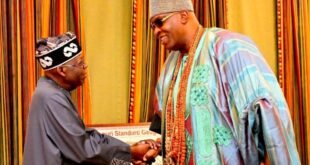In the heart of Nigeria, nestled within its diverse cultural tapestry, lies the unique Fulani community. Known for their nomadic lifestyle and rich traditions, the Fulani people have held steadfast to their customs for generations. One such practice that has persisted over time is early marriage, a topic that warrants a closer examination. While it is easy to pass judgment from the outside, understanding the complexities and nuances of early marriage in the Fulani community is crucial to advocating for meaningful change.
Early marriage, defined as the union of individuals before the age of 18, is a deeply rooted practice in many societies worldwide. In the Fulani community, this tradition is deeply intertwined with their way of life and cultural identity. Understanding the reasons behind early marriages here requires acknowledging the cultural and socioeconomic factors at play.
Firstly, the Fulani community places great importance on preserving their heritage and traditions. Marriage, for them, is not just an individual choice but a communal affair. It serves as a way to strengthen bonds within the community, ensuring the continuation of their unique way of life. Young marriages are often seen as a means of keeping their traditions alive, as older individuals may be more inclined to adopt urban lifestyles that deviate from their nomadic roots.
Secondly, socio-economic factors heavily influence the prevalence of early marriage in the Fulani community. Poverty remains a significant issue, and families often struggle to make ends meet. Early marriage is viewed as a solution to ease the financial burden. By marrying off their daughters at a young age, parents can reduce the number of mouths to feed and potentially receive a bride price that can help sustain the family. However, it’s crucial to recognize that this is often a survival strategy rather than a malicious intent to harm their children.
In addition to these factors, gender roles play a crucial role in the perpetuation of early marriage. Traditional gender norms place a heavy emphasis on a woman’s role as a wife and mother. Girls are often expected to transition into these roles at a young age, which reinforces the practice of early marriage. Empowering women with education and economic opportunities could help shift these gender dynamics over time.
Now, while we acknowledge the cultural and socioeconomic context of early marriage in the Fulani community, it is imperative to highlight the negative consequences this practice can have on young girls. Early marriage often results in girls dropping out of school, limiting their opportunities for personal growth and financial independence. Furthermore, early pregnancies can lead to serious health risks for young mothers, and early marriages can perpetuate a cycle of poverty for generations.
Addressing early marriage in the Fulani community requires a multifaceted approach that respects their traditions while striving for positive change. Education, both for girls and the broader community, is a critical component of this transformation. By offering alternative pathways for girls’ empowerment, such as vocational training and access to higher education, we can provide them with choices beyond early marriage.
Furthermore, engaging local leaders and elders in open dialogues about the consequences of early marriage is vital. These respected figures can play a pivotal role in shifting community attitudes and practices. Encouraging them to champion initiatives that promote gender equality and the importance of education can have a significant impact.
Supporting economic development within the Fulani community is another essential aspect of tackling early marriage. Programs that provide families with opportunities for income generation can alleviate the economic pressures that drive parents to marry off their daughters at a young age.
In conclusion, early marriage in the Fulani community of Nigeria is a complex issue deeply intertwined with cultural, socioeconomic, and gender dynamics. While it may be easy to condemn this practice from an outsider’s perspective, it is essential to understand the root causes and work collaboratively with the community to bring about meaningful change.
By respecting their traditions, offering education and economic opportunities, and engaging community leaders, we can help the Fulani community transition towards a future where early marriage is no longer a necessity but a choice made with informed consent. In doing so, we can empower young girls and ensure the preservation of the Fulani heritage in a way that respects human rights and individual aspirations. Free Research Preview may produce inaccurate information about people, places, or facts.
 JamzNG Latest News, Gist, Entertainment in Nigeria
JamzNG Latest News, Gist, Entertainment in Nigeria









